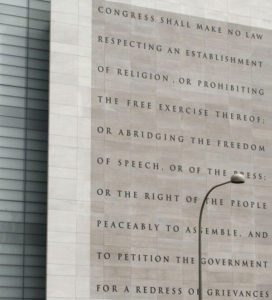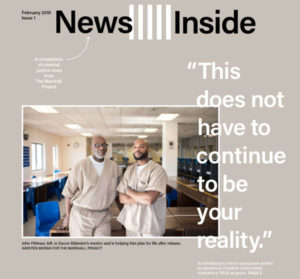
June 18, 2017; New York Times
This past Sunday in the Critics’ Notebook section of the New York Times, Adam Kirsch, in response to President Trump’s recent dismissal of critics at his commencement speech at Liberty University, wrote an ode to critics and explored the role of criticism in a democracy.
In the speech, Trump said, “Nothing is easier or more pathetic than being a critic, because they’re people that can’t get the job done…The future belongs to the dreamers, not to the critics.”
Not so fast, Kirsch replies. Though disdain for critics is not an original idea, especially in the art world, “Once a work of art emerges from its creator’s study or studio, it becomes the possession of anyone who interacts with it, and therefore it is open to judgment: Do I actually derive pleasure and enlightenment from it?” Kirsch sees this question, which he calls “the foundation of all criticism,” as one we are all entitled to ask, especially in a democracy.
For Kirsch, judgment thrives in plurality, “Everyone brings his or her own values and standards to the work of judging.” It is this very ability to judge that democracies rely on and that fascism seeks to conquer. This way, Kirsch highlights Trump’s efforts to squelch critics, his inability to accept the mirroring of others, as a dangerous sign in a democracy. One that goes hand in hand with a disdain for plurality.
Kirsch notes that one reason artists don’t like criticism is that it reveals their “will to power,” their true motivations. However, when one places oneself in the public light, one must accept, if not invite, the responses of those on the other side of the experience. U.S. presidents, then, who claim much will to power, must model humility in the face of criticism, for with that much power it is dangerous to “see criticism as nothing but an expression of resentment.” Instead, like a bully at the playground, Trump belittles his critics with derogatory names “like ‘low-energy’ Jeb Bush and ‘little’ Marco Rubio.”
Sign up for our free newsletters
Subscribe to NPQ's newsletters to have our top stories delivered directly to your inbox.
By signing up, you agree to our privacy policy and terms of use, and to receive messages from NPQ and our partners.
While he goes about attempting to undo what so many people over so many generations built, in the midst of an investigation into alleged illegal Russian involvement in the election that brought him to power, he expects and demands no reflection on his motives, acceptance of the sincerity of one who falls so visibly short of truth.
Kirsch writes, “For in politics, as in art, the right to criticize is really the right to make an independent judgment of reality. Democracy relies on a citizenry informed and active enough to make such judgments; in a democracy, we are all critics.”
As so many are negatively impacted by the decisions and rhetoric of the Trump presidency, independent judgment is at a premium. In the feminist classic The Great Cosmic Mother, Sjöö and Mor revealed reversal to be one of the key power grabbing strategies of patriarchy. We see this reversal in Trump’s statement, “A small group of failed voices who think they know everything and understand everyone want to tell everybody else how to live and what to do and how to think.”
While criticism is uncomfortable and almost no one welcomes it, it plays a critical role in a democracy. Kirsch concludes,
[As] soon as our critics become our enemies—voices to be silenced and dismissed, rather than listened to—we have left the realm of politics behind…Politicians who set themselves up as artists of reality, however, who demand the total appreciation an artist longs for, are extremely dangerous. By suggesting that all criticism of their ideas and plans is invalid, nothing but the product of malice, they make public deliberation impossible.
As a sector that supports public deliberation, nonprofits must promote criticism. In Black Skins, White Masks, Frantz Fanon deepens our understanding of criticism by including it as the first step in a practice of resistance. He calls it deconstruction. We must be able to see the signs of power and the connections between them that construct a dominant story. For us to do this as a sector, we need to tackle our own internalization of dominant stories. While Trump may by a potent symbol for power run amok, we all play a role in supporting it when we turn away from criticism.—Cyndi Suarez













